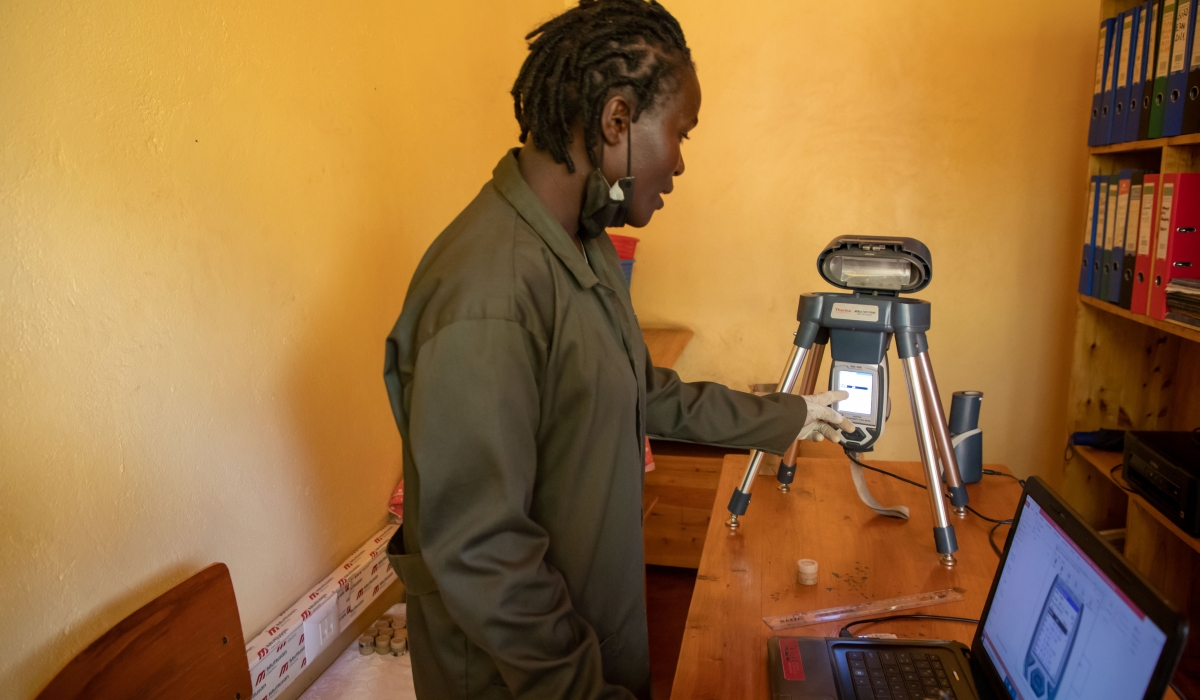How Gakenke-based mining cooperative is embracing gender equality, fighting against GBV in sector

Francine Niyigena, a genealogist at KOMIKAGI, operating a machine that assesses the quantity of minerals in a given sample

